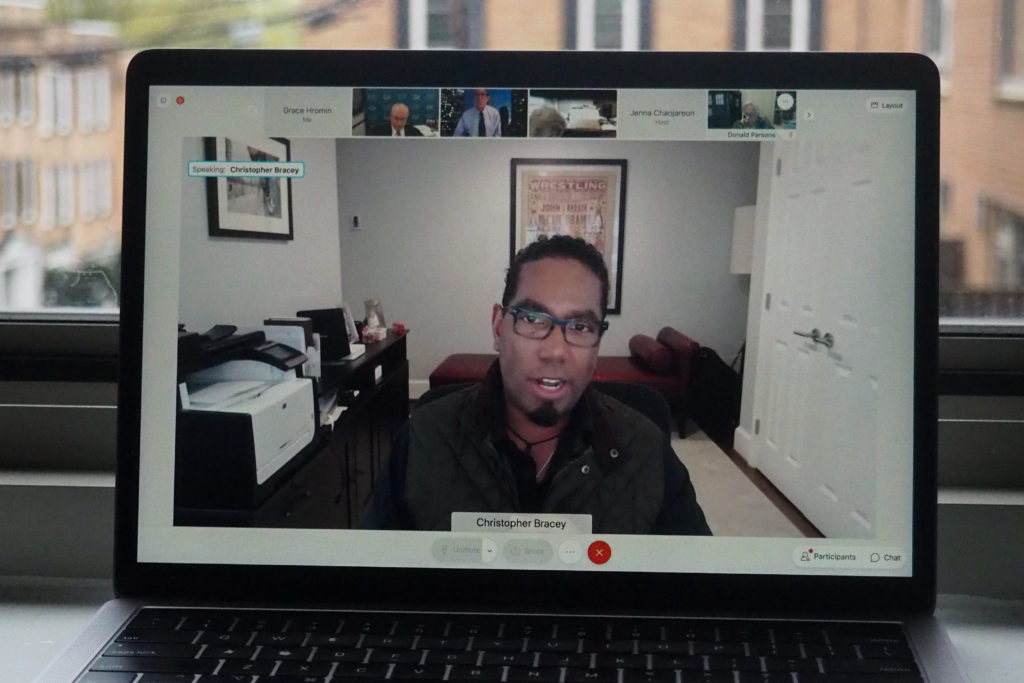Officials said they plan to continue convening a two-year-old consultative body that will field and approve incoming requests to change bylaws within GW’s schools.
Chris Bracey, the vice provost for faculty affairs, said at a Faculty Senate meeting Friday that a consulting body termed the “brain trust” – made up of Provost Brian Blake, the senate parliamentarian and faculty from the senate’s professional ethics and academic freedom committee – will respond to requests for policy updates that officials have submitted. Bracey said he established the body in 2019 to align the school’s bylaws with changes the Board of Trustees approved to the Faculty Code.
“In general, it’s my belief that it’s never a bad thing to consult the faculty on these sorts of things,” he said.
Bracey said recent changes to the Faculty Code – which officials implemented in June – include a new institutionalized review of the provost’s performance, an updated parental leave policy and updates to the University’s promotion and tenure processes. The updates separate criteria for appointments and promotions for non-tenure track, specialized faculty and regular faculty and increase confidentiality in job evaluations, like recommendation letters during the tenure and promotion process.
The changes also grant specialized faculty the same parental leave rights provided to regular faculty.
“At this point, every school’s rules have been reviewed and approved for compliance with the revised Faculty Code,” Bracey said.
Arthur Wilson, the chair of the senate’s executive committee, said officials finished compiling the quantitative results for the faculty survey on University leadership last week, and the executive committee will develop a set of recommendations for the senate to vote on in a special meeting on April 23. The Faculty Assembly voted in November to conduct the survey, and officials completed gathering the quantitative results of the survey in February.
Senators also passed a resolution of appreciation for outgoing senate parliamentarian Steve Charnovitz to recognize his “dedication and skill” in advising University President Thomas LeBlanc and former University President Steven Knapp during the 13 years he served as parliamentarian.
“In recognition of his tireless efforts on behalf of and his outstanding contribution to the George Washington University and its faculty as parliamentarian, colleague and friend, the Faculty Senate of the George Washington University hereby expresses its deepest appreciation and gratitude to Professor Steve Charnovitz for his distinguished service,” the resolution reads.
The senate unanimously approved Sarah Binder as the senate’s next parliamentarian. The senate also unanimously confirmed the membership of next term’s senate executive committee, with Wilson continuing to serve as chair.
Senators also confirmed Marie Borum to serve on the fiscal planning and budgeting committee and Joan Schaffner to serve as the dispute resolution committee chair.
Lynn Goldman, the dean of the Milken Institute School of Public Health, signaled support for requiring COVID-19 vaccinations for students returning to campus during the fall, saying campus would be safer with a vaccinated population. She said officials are discussing medical exemptions to a possible requirement.
Officials haven’t yet decided if they will require vaccination and said they’re hearing feedback from students, faculty and parents about the issue.
“My professional opinion is that we should move in that direction,” Goldman said. “Certainly for the students, it can make an enormous difference in their health and well-being as well as their ability to have more normal college experiences.”







